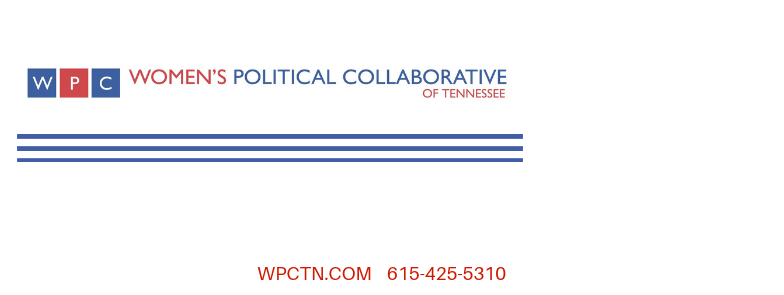2010 Legislative Summary
Anne Carr, NWPC Lobbyist
Here is a description of the pieces of legislation of interest that were hot topics this year in the second and final year of the 106th General Assembly. Information on all bills monitored by NWPC is available to members upon request. Please contact Anne Carr at anne@smithharriscarr.com for information or with questions.
Mandatory Joint Custody/Equal Time – FAILS TO PASS (opposed by NWPC)
This perennial legislation, often filed multiple times in one session, has required heavy levels of time, energy, and member contacts, but, once again, NWPC was an integral part of a successful effort to stop it. HB2916, by Rep. Mike Bell, was the primary vehicle this year for the “DADS” group that has historically pushed the bill. In a surprise move early in session, the bill was assigned to a different subcommittee of the Children and Family Affairs Committee, one that had never heard the bill before, and Rep. Bell was the subcommittee chairman in charge.
After literally weeks of hearings and emotional discussion, there was significant opposition among subcommittee members to the original bill. An amendment that eliminated the equal time requirement, the bill’s central provision, was added over the sponsor’s objections, and he took the bill “off notice,” which is usually a sign that the bill will not be heard again and is dead.
However, Rep. Bell later decided to revive the bill, and he agreed to keep the subcommittee amendment on the bill, if the full committee would pass it out. The committee approved the bill based on his commitment, but it quickly became apparent that the Senate bill might pass without such an amendment. The House Calendar and Rules Committee later voted the bill down because of that concern, led by Rep. Johnny Shaw, who happened to serve on both Calendar and Rules and the Children and Family Affairs Committee.
The companion bill, SB2881 by Sen. DeWayne Bunch, appeared late in session on the Senate Judiciary Committee calendar, but it was never heard because of the ongoing controversy in the House.
Rep. Bell is giving up his House seat this election year to run for Sen. Bunch’s Senate seat, which is open because Bunch is retiring from the legislature.
Victim Tenant Lease Termination – FAILS TO PASS (supported by NWPC)
HB323, by Rep. Sherry Jones, would have allowed a tenant, who is the victim of domestic abuse, sexual assault or stalking, to terminate a lease agreement, but it was not approved by the House Criminal Practice Subcommittee of the House Judiciary Committee. Despite an emotional hearing on the bill, it never generated adequate support because of vocal opposition by an organization representing landlords. The Senate bill, SB902 by Sen. Marrero, was never scheduled for the Senate Judiciary Committee because of the lack of support in the House subcommittee.
The termination of a lease under the provisions of the bill would have required submitting one of the following: an order of protection; a written report from a law enforcement agency; a written report from a domestic violence or child abuse agency; or a written medical report. The bill was proposed by the Tennessee Coalition Against Domestic & Sexual Violence and endorsed by the NWPC.
Funding for Coordinated School Health and Governor’s Office of Child Care Coordination – APPROVED (supported by NWPC)
$15 million in continued funding for the critically important Coordinated School Health (CSH) program was retained in the budget despite early concerns that it might be reduced. The program provides for health coordinators in virtually every school district in the state and has had measurable results in terms of child health indicators such as Body Mass Index measures.
The Governor’s Office of Child Care Coordination (GOCCC) became a target of budget cutters in the Senate during the last few weeks of the session, and the protection of its funding was added to the legislative priorities of the NWPC at that time. For a couple of weeks, GOCCC was slated to lose half of its funding for the next fiscal year and to close down completely at the end of next December. It’s full $9 million, which is mostly doled out in the form of grants related to infant mortality and child health, was fully restored. Both GOCCC and CSH are funded in the coming year with non-recurring dollars, which puts them at high risk for cuts again in 2011. (This is true for many worthy programs this year.)
Women’s Health and Reproductive Freedom Takes a Hit in 106th
HB2681/SB2686, by Rep. Matt Hill and Sen. Diane Black, which sought to prohibit abortions of any kind from coverage in a future state health insurance exchange, was approved by both the House and Senate and is now Public Chapter 879.
The House had a raucous discussion about whether the bill should be amended to ensure that it would not affect women who were the victims of rape or incest or who might endanger their health or lives by continuing a pregnancy. Rep. Jeanne Richardson of Memphis expressed concern that the broad language of the bill could inadvertently result in no health insurance coverage for some forms of birth control, including IUD’s and emergency contraception. The sponsors repeatedly argued that passage of the bill was the only way to ensure that taxpayer dollars were not spent on abortions and that women whose health was threatened would have other options. (They did not elaborate on what the other options were.)
The legislation passed the House 70-23, with these NO votes: Armstrong, Borchert, Brown, Camper, L. DeBerry, Favors, Gilmore, Hardaway, Harmon, S. Jones, U. Jones, Kernell, Miller, Moore, Odom, Pruitt, Richardson, sontany, Stewart, Tidwell, Tindell, Towns, and J. Turner.
The Senate bill passed even more overwhelmingly, with only three NO votes. They were by Senators Thelma Harper, Beverly Marrero, and Ophelia Ford.
Also passed was HB3301/SB3812, by Rep. Susan Lynn and Sen. Jack Johnson, which requires “anti-coercion” signage prominently placed in any clinic that performs abortions. The measure is Public Chapter 3812. Supporters of the bill said it was to prevent women from making a decision about an abortion while under pressure from a partner or family member, but the legislation is clearly aimed at clinics and includes fines of $2500 per day if the signs are not properly posted in waiting areas and in individual patient exam or counseling rooms. The language of the sign must be in bold, 40 point type and must read exactly as follows:
Notice: It is against the law for anyone, regardless of the person’s relationship to you, to coerce you into having or to force you to have an abortion. By law, we cannot perform an abortion on you unless we have your freely given and voluntary consent. It is against the law to perform an abortion on you against your will. You have the right to contact any local or state law enforcement agency to receive protection from any actual or threatened criminal offense to coerce an abortion.

